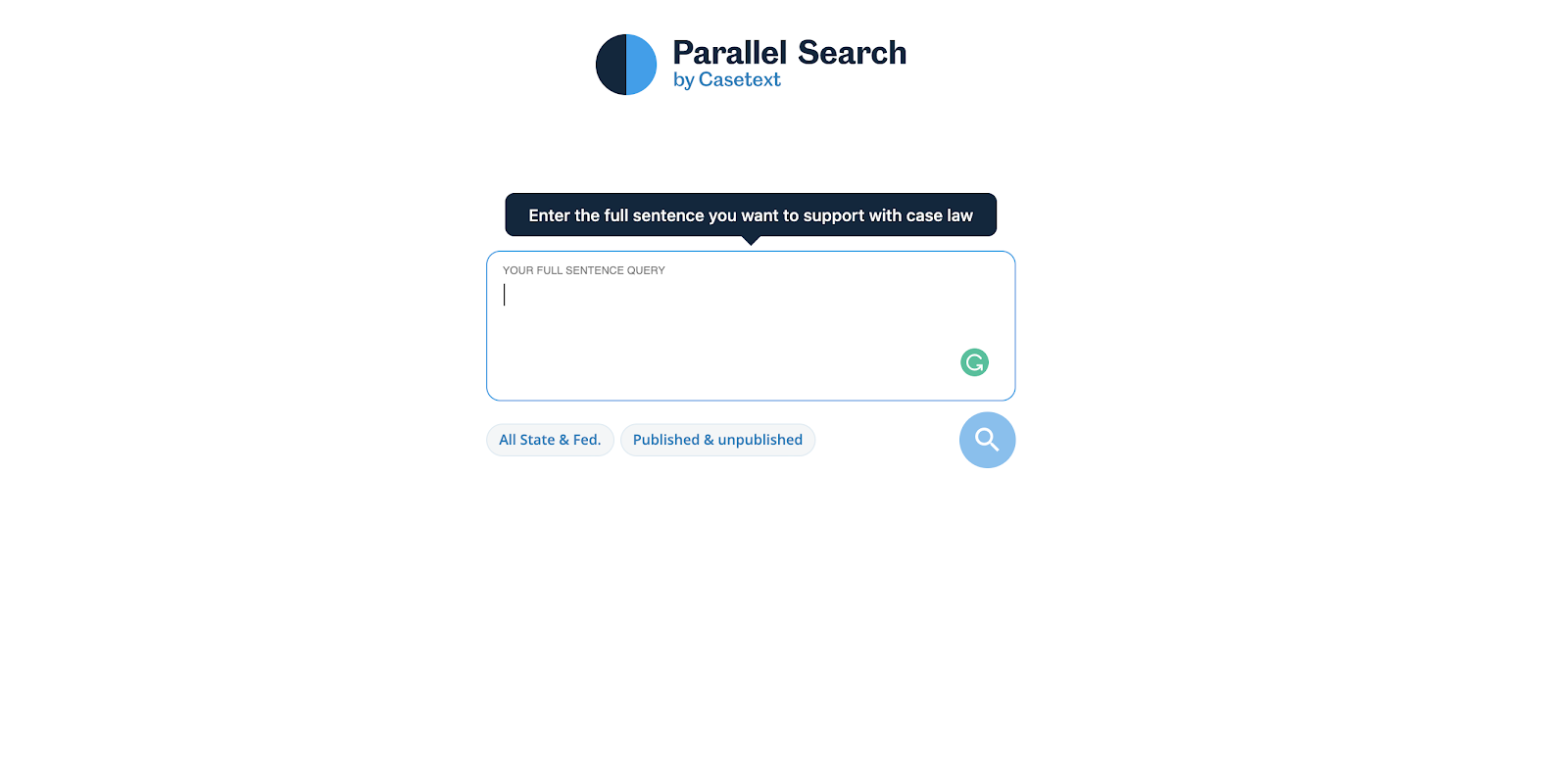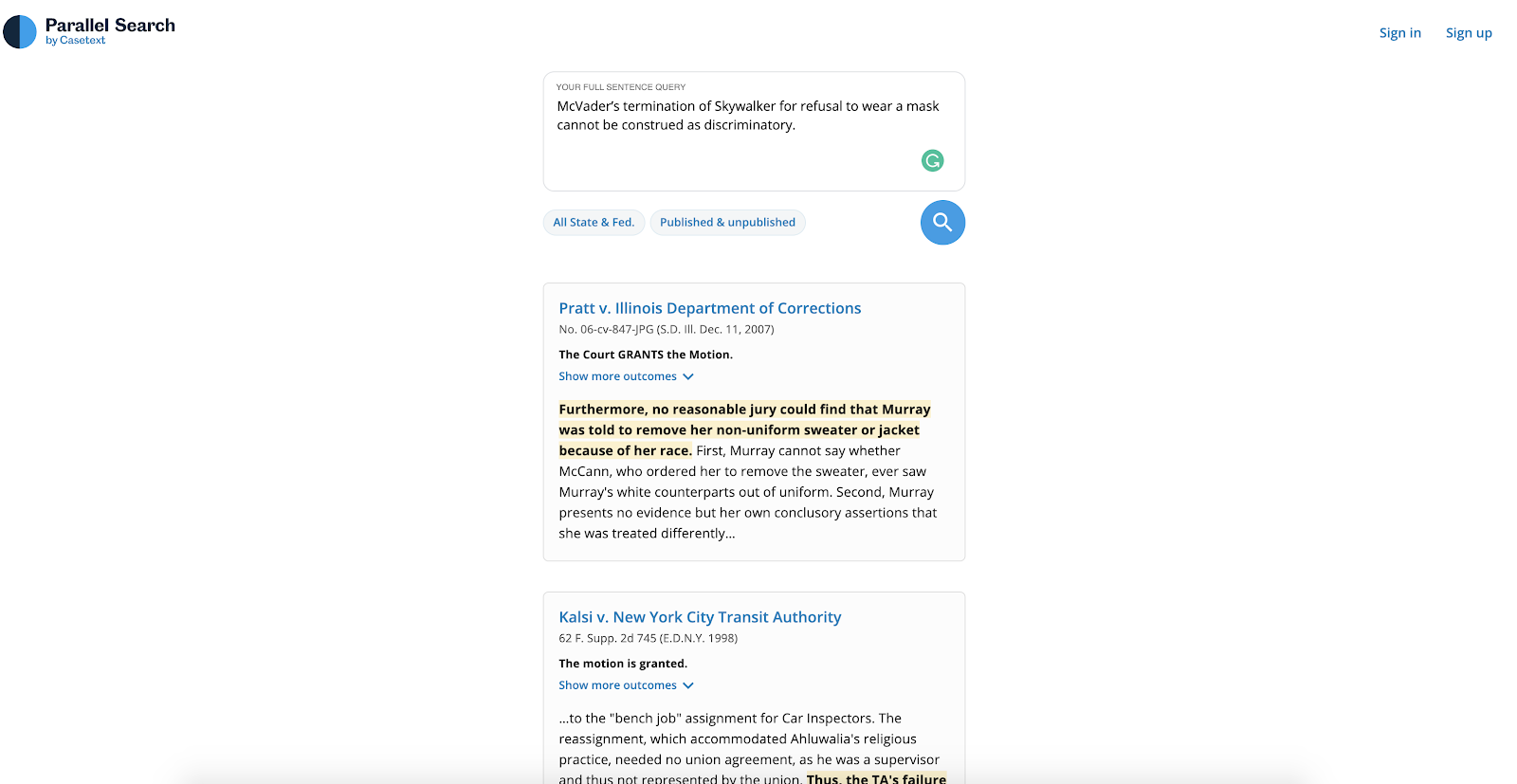‘Straight Up Witchcraft’: Why Legal Twitter Loves This New Research Tool
Casetext’s ‘Parallel Search’ function carries you beyond your keywords.
Tired of banging your head against the proverbial wall amid another late night research session?
Casetext is here to help with a new, deceptively simple search tool — whose uncannily relevant results have been described by one lawyer as “straight up witchcraft.”
The legal research company’s new product, called “Parallel Search,” allows you to type a full sentence into a search bar and instantly find cases that are relevant to your entry’s meaning. In other words, relevant results will be delivered — even if your exact words are entirely absent from the underlying case.
The tool enables you to get beyond the frustration that can arise from literal and complex keyword searches. It can also streamline your research process, helping you quickly find authority for statements you know to be true while accessing comprehensive results for topics on which you’re seeking guidance.
While it’s still a relatively new offering, Parallel Search has already received widespread praise as a highly useful research aide — particularly from the sometimes tough crowd on Legal Twitter:
The Parallel Search Experience
While the functionality behind Parallel Search is intricate, the user interface is highly straightforward.
When you open the Parallel Search application, you receive a simple prompt to enter a “full sentence you want to support with case law,” as well as the option to refine your search by jurisdiction and whether a decision has been published.
Your results are then delivered in a stream of case citations, with the relevant text highlighted.
Notably, the search results are not limited to keyword, but are instead focused on the meaning of your search. In the screenshot below, for example, Parallel Search finds a quote including the phrase “because of her race” in response to a query over whether a hypothetical action is “discriminatory.”
You can then refine your query or start a new search.
The potential use cases are widespread for this tool, which ultimately allows you to write a statement and instantly find out whether courts have addressed it, how they addressed it, and what they ended up deciding in the matter.
As Parallel Search users have noted, the function is a potentially transformative time-saver for legal brief authors, or a helpful guide for lawyers looking for guidance on how to advise a client considering a particular action.
Going Beyond Boolean
To create its Parallel Search function, Casetext applied its machine learning capabilities to the entirety of common law, training neural networks to power a search function that contextualizes words in a way similar to how lawyers think.
For one example, it was trained to understand the word “will” in part by inserting it into phrases like “last [blank] and testament.” But Parallel Search understands that “will” can also appear as a name, or as an indicator that something is going to happen in the future, or in a case caption, because the product has been trained on phrases where “will” is used in those contexts as well.
That’s why the Parallel Search function utilizes an entire sentence, as opposed to a string of keywords.
Parallel search, for example, will not bring up a Chapter 11 ruling in response to a query about whether an action is “morally bankrupt,” nor will it typically interpret a description of a “frankly incredible” argument as praise — despite the word “incredible” having positive connotations in other uses.
Getting Started
New Casetext users can get three free searches before being asked to sign up. They can then get another three free searches.
After these six free searches have been exhausted, they can get a day pass for unlimited use during a 24-hour period for $19. Or they can get a monthly subscription for $49.










